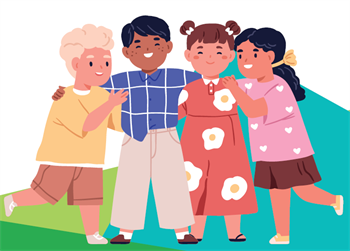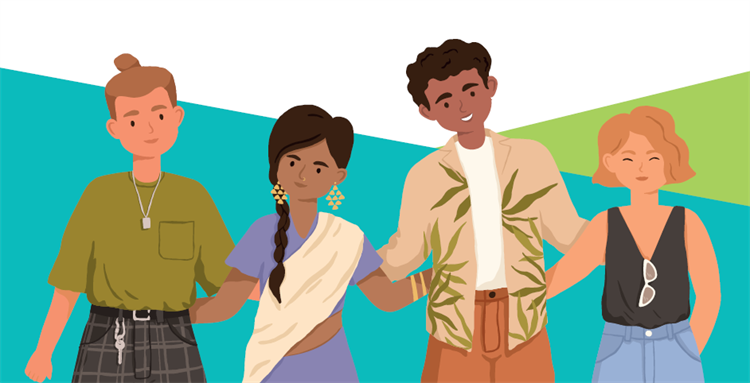Information for children and young people: What happens when you make an allegation about an adult in a position of trust
 What is an allegation?
What is an allegation?
If you feel that an adult who works with children, like a teacher, sports coach or someone else in a position of trust, has done something wrong or harmful, you can report this to a trusted adult. This report is called an allegation.
Here are some examples of what could be considered allegations:
1. Physical abuse allegation
- A child claims that a sports coach physically harmed them, such as hitting,slapping, or pushing them.
- Example: "The coach grabbed my arm and pushed me against the wall during practice."
2. Emotional abuse allegation
- A child or parent alleges that the adult in a position of trust consistently yells, belittles, or humiliates the child in front of others.
- Example: "My teacher always makes fun of me in front of the class and calls me stupid."
3. Sexual misconduct allegation
- A serious allegation where a child claims inappropriate behaviour of a sexual nature by an adult.
- Example: "The youth worker touched me inappropriately during a music activity."
4. Neglect allegation
- An adult is accused of failing to provide adequate care or supervision to children in their care.
- Example: "The befriender left me unsupervised in the park and I was scared and wandered off and got lost"
5. Inappropriate language or behaviour allegation
- An allegation that an adult used offensive or inappropriate language around or directed at children.
- Example: "The teaching assistant used swear words and made inappropriate jokes during playtime."
6. Favouritism or discrimination allegation
- A child or parent may allege that the adult shows unfair favouritism or discriminates against certain children based on race, gender, or other factors.
- Example: "The teacher only gives good grades to students she likes, and she always singles me out because I’m from a different country."
7. Improper use of social media allegation
- An allegation where a child claims that the adult contacted them inappropriately through social media or other online platforms.
- Example: "My social worker sent me personal messages on social media outside of school hours, and they made me uncomfortable."
What happens when you make an allegation?
Tell a trusted adult: If you feel uncomfortable or think something wrong has happened, you can talk to a teacher, social worker or another adult you trust. They will take your concerns seriously and help you.
Your voice matters
When you make an allegation, your feelings and views are important. The adults who handle the situation will make sure your voice is heard and that you feel supported throughout the process.
The role of the LADO
When an allegation involves an adult in a position of trust, the Local Authority Designated Officer (LADO) becomes involved. The LADO’s job is to oversee the situation and make sure that everyone follows the right steps to protect you and handle things fairly.
What does the LADO do?
Makes sure you’re safe
The LADO’s main job is to make sure that you and other children are safe while the situation is looked into.
Listens to your views
The LADO works with the people handling the case; police, children social care or the employer to ensure that what you say is listened to and taken into account. Your thoughts and feelings will be considered as decisions are made.
Oversees the process
The LADO does not investigate the situation directly. Instead, they make sure that the right people, like your school or the police, look into the situation carefully and fairly.
What happens next?
Investigation
After you make an allegation, the people in charge (like your school or the police) will investigate what happened. They will talk to different people to understand what occurred.
You are kept informed
You will be kept updated throughout the process, and adults will help explain what’s happening in a way you can understand.
Fair treatment for everyone
The LADO helps make sure that things are handled fairly. The adult involved will be treated fairly, too, while everything is being looked into. No one will automatically assume anything until all the facts are known.
How will you be supported?
Your safety is the priority
The most important thing is that you feel safe and supported. If you need extra support, adults at school, social workers or other trusted professionals will help you.
Your feelings are important
It’s normal to feel nervous or worried after making an allegation. Adults are there to listen to how you’re feeling and help you understand what’s going on.
What should you do if you have a concern?
If you’re ever worried about how an adult is acting, it’s okay to speak up. You can talk to a teacher, social worker or any trusted adult. They are there to listen and help you.
You can also contact:
- Police by calling 999
- NSPCC by calling 0808 800 5000
- Childline by calling on 0800 1111
Remember:
- Your voice will be heard
- You are not alone— trusted adults are there to help and support you
- Your safety and feelings matter the most.
If you have any questions or are unsure about anything, don’t hesitate to ask the adults supporting you. They are there to make sure everything is handled properly and fairly. To initiate a complaint, please contact SQA@towerhamlets.gov.uk.
